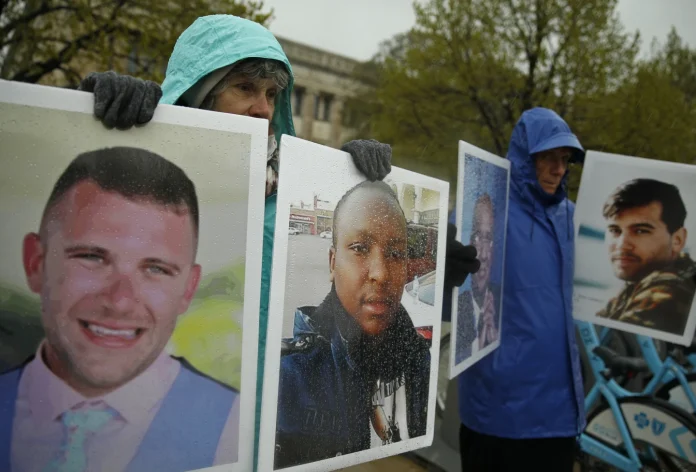Ike and Susan Riffel, a couple from California, travel through Alaska, pausing occasionally to affix stickers guiding people to “Live Riffully” in honor of their late sons, Melvin and Bennett. The brothers tragically perished in 2019 aboard a Boeing 737 Max jetliner that crashed in Ethiopia. Now, along with other bereaved families from the Indonesia crash just months prior, they anxiously await a decision from the U.S. Justice Department on whether Boeing will face prosecution for the twin disasters that claimed 346 lives.
Ike Riffel is apprehensive that rather than bringing Boeing to trial, the government might opt for a deferred prosecution agreement (DPA) or a guilty plea, which could obscure the truth behind what transpired during the design and testing phases of the Max. “A DPA hides the truth. A plea agreement would hide the truth,” he laments, emphasizing the families’ need for transparency and accountability regarding who was responsible for their sons’ untimely deaths.
Both Ike and Susan, retired professionals from Redding, California, recall their sons fondly: Mel, 29, who was expecting his first child, and Bennett, 26, known for his passion for performing arts and IT support work in Chico. The brothers, adventurous and independent, were on a global tour that tragically ended when they boarded Ethiopian Airlines Flight 302 in Addis Ababa.
The initial news of the crash was surreal for the Riffels. Susan answered the fateful call on a Sunday morning, initially in disbelief. “You still don’t believe after you see that there was a crash,” Ike recounts. The subsequent revelation in January 2021 of Boeing’s fraud charges by the Justice Department, coupled with an unexpected deferred prosecution agreement, further deepened their disillusionment. Ike reflects on feeling powerless and deceived by the justice system’s handling of the case.
The reopening of the Boeing prosecution possibility last month marked a glimmer of hope for the families, who believe Boeing violated the terms of the 2021 agreement. Ike and Susan remain critical of Boeing’s lack of direct communication with them, suspecting legal advice has kept the company at a distance. “I have no trust in (Boeing) to do the right thing, and I really lost my confidence in the Department of Justice,” Ike asserts, disappointed by what he perceives as the government’s prioritization of corporate interests over public safety.
In, March 2019 Ethiopian crash, closely following the Indonesia tragedy, highlighted software malfunctions known as MCAS that repeatedly pitched the planes downward based on faulty sensor readings. Lawsuits from families of both flights ensued, primarily settled by Boeing under non-disclosure agreements. The Riffels found solace in uniting with other grieving families, collectively advocating for safer aviation practices and stringent accountability measures.
Javier de Luis, an aerospace engineer, and Michael Stumo and Nadia Milleron, who lost their daughter Samya, are among the outspoken advocates urging the Justice Department to prosecute high-ranking Boeing executives. Their demands include substantial fines and transparency about Boeing’s corporate decisions leading up to the disasters. The group’s lobbying efforts in Washington underscore their commitment to prevent future tragedies and ensure justice for their loved ones.
We want to find some meaning in what happened to our loved ones,Ike reflects.If we can make aviation safer so this doesn’t happen again, then we have had some victories out of this.The Riffels and their fellow families continue to press for accountability, hoping their efforts will bring about lasting changes in aviation safety standards and corporate responsibility.























